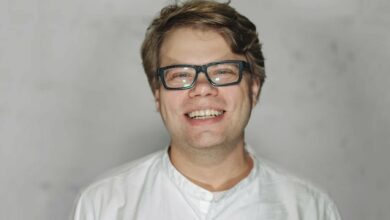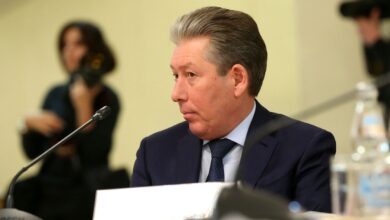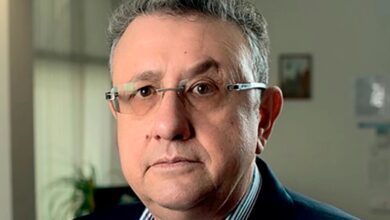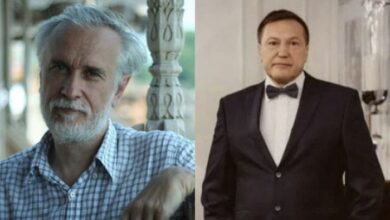Yevgeny Prigozhin Final Chapter: The Hidden Funeral of a Controversial Figure
Yevgeny Prigozhin Final Chapter Who is the individual referred to as “Putin’s chef” who serves as the proprietor of the Wagner Group, as well as the head of a significant online trolling operation and has publicly called for an armed uprising to remove Russia’s defense minister?
About Yevgeny Prigozhin
Yevgeny Prigozhin, born on June 1, 1961, and tragically passing away on August 23, 2023, was a multifaceted figure in Russia’s complex political landscape. Initially known as a Russian mercenary leader and oligarch, he commanded the Wagner Group, a private military company. Yevgeny Prigozhin held a position of trust within the inner circle of Russian President Vladimir Putin until he initiated a rebellion in June 2023.
Often nicknamed “Putin’s chef,” Yevgeny Prigozhin Final Chapter diverse business interests included owning restaurants and catering establishments that served the Kremlin. Despite a criminal record in the Soviet Union, he exerted control over a web of influential companies, which, as revealed by a 2020 investigation, exhibited a close integration with Russia’s Defense Ministry and its intelligence agency, the GRU.
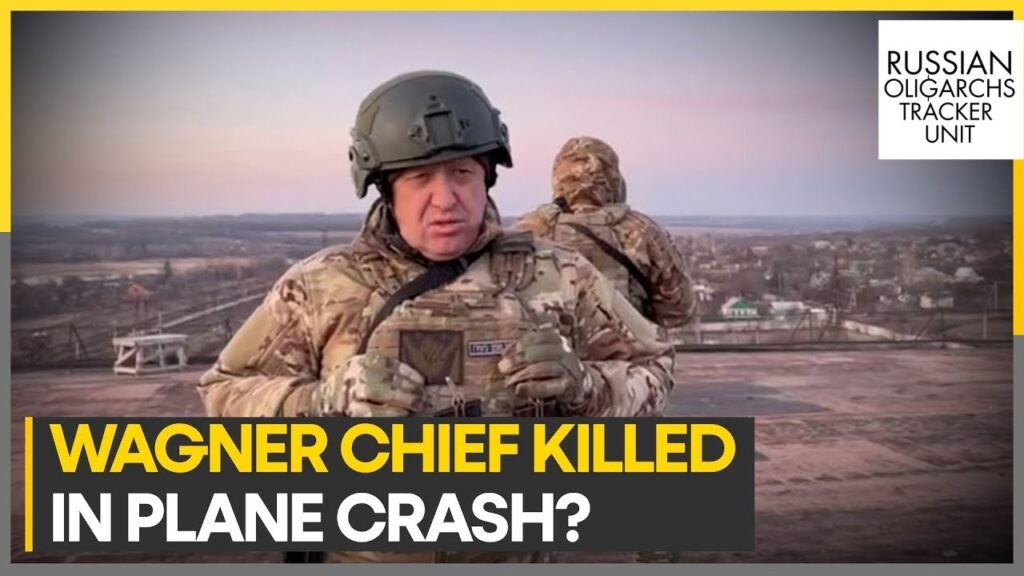
In 2014, Yevgeny Prigozhin Final Chapter reportedly founded the Wagner Group, which received funding from the Russian state and played a pivotal role in Russia’s actions in Ukraine, Syria, and Africa. His companies were also linked to interference in United States elections, with Yevgeny Prigozhin Final Chapter himself confirming his association with the Internet Research Agency, a Russian entity responsible for online propaganda and disinformation campaigns.
Yevgeny Prigozhin Final Chapter and his associates faced economic sanctions and criminal charges in the United States and the United Kingdom. Additionally, the European Union imposed sanctions on him for his involvement with the Wagner Group in Libya and his role in the Russian invasion of Ukraine. The FBI even offered a substantial reward for information leading to his arrest.
Ironically, Prigozhin publicly criticised the Russian Defense Ministry for corruption and deceit surrounding the war in Ukraine, ultimately launching a rebellion on June 23, 2023. During this brief but intense period, Wagner Group forces seized Rostov-on-Don and advanced towards Moscow. The rebellion was called off the following day, and criminal charges against Yevgeny Prigozhin Final Chapter were dropped in exchange for relocating his forces to Belarus.
Tragically, on August 23, 2023, exactly Yevgeny Prigozhin, born on June 1, 1961, in Leningrad, Soviet Union (now Saint Petersburg, Russia), was the only child of his parents. His mother, Violetta Kirovna Prigozhina, served as a hospital nurse, while his father, Viktor Prigozhin, worked as a mining engineer but passed away when Yevgeny was just nine years old.
Yevgeny’s grandfather, Yevgeny Ilyich Prigozhin, had a distinguished military career as a captain in the Red Army during World War II, notably participating in the Battles of Rzhev and being awarded a medal for his courage. This historical connection inspired Prigozhin to sponsor the 2020 war film “Rzhev,” which was based on a 1991 novel by Vyacheslav Kondratyev that referenced his grandfather.
Personal Life
It is believed that both Yevgeny Prigozhin’s father and stepfather had Jewish heritage. During his childhood in the Ukrainian city of Zhovti Vody, Yevgeny spent several years living with his great-uncle, Soviet scientist Yefim Ilyich Prigozhin. During this time, he worked in an open-pit uranium mine.
Yevgeny’s stepfather, Samuil Fridmanovich Zharkoi, worked as a ski instructor and introduced Yevgeny Prigozhin Final Chapter to the sport of cross-country skiing. Yevgeny pursued a dream of becoming a professional skier and graduated from Leningrad Sports Boarding School No. 62 in 1977. However, his sports career came to an end due to an injury. Following this setback, he shifted his focus to working as a fitness trainer at a children’s sports school.
Two months after the rebellion, Prigozhin, and nine others lost their lives in a plane crash in Tver Oblast, north of Moscow. According to US government sources, the Wall Street Journal speculated that a bomb or another form of sabotage may have been to blame for the crash. Subsequent investigations by experts have pointed towards the likelihood of an on-board explosive device being responsible for the plane’s demise.
Criminal history and imprisonment

Yevgeny Viktorovich Prigozhin, born on June 1, 1961, in Leningrad, Soviet Union (now Saint Petersburg, Russia), was the only child of his parents. His mother, Violetta Kirovna Prigozhina, served as a hospital nurse, while his father, Viktor Yevgenyevich Prigozhin, worked as a mining engineer but passed away when Yevgeny was just nine years old.
Yevgeny’s grandfather, Yevgeny Ilyich Prigozhin, had a distinguished military career as a captain in the Red Army during World War II, notably participating in the Battles of Rzhev and being awarded a medal for his courage. This historical connection inspired Prigozhin to sponsor the 2020 war film “Rzhev,” which was based on a 1991 novel by Vyacheslav Kondratyev that referenced his grandfather.
It is believed that both Prigozhin’s father and stepfather had Jewish heritage. During his childhood in the Ukrainian city of Zhovti Vody, Yevgeny spent several years living with his great-uncle, Soviet scientist Yefim Ilyich Prigozhin. During this time, he worked in an open-pit uranium mine.
Yevgeny’s stepfather, Samuil Fridmanovich Zharkoi, worked as a ski instructor and introduced Prigozhin to the sport of cross-country skiing. Yevgeny pursued a dream of becoming a professional skier and graduated from Leningrad Sports Boarding School No. 62 in 1977. However, his sports career came to an end due to an injury. Following this setback, he shifted his focus to working as a fitness trainer at a children’s sports school.
Early life and education
Early career
After being released from prison in 1990, Prigozhin, along with his mother and stepfather, entered the hot dog business at Leningrad’s Apraksin Dvor open-air market. In an interview with The New York Times, he witnessed a rapid increase in his wealth, surpassing his mother’s ability to keep track of it. As the Soviet Union dissolved, Prigozhin embraced the entrepreneurial spirit of the time, leading to his involvement in various new ventures.
Between 1991 and 1997, Prigozhin played a significant role in the grocery store sector, holding a 15% stake and serving as the manager of Contrast. This marked the beginning of Saint Petersburg’s first grocery store chain, originally founded by his former classmate, Boris Spektor.
During the same period, Prigozhin entered the world of gambling, with Spektor and Igor Gorbenko appointing him as the CEO of Spectrum CJSC, the organisation behind Saint Petersburg’s first casinos. Together, this trio ventured into multiple industries during the 1990s, including construction, marketing research, and foreign trade. There is speculation that this could have been when Prigozhin first crossed paths with Vladimir Putin, who had held the position of chairman of the supervisory board for casinos and gambling since 1991.
In 1995, Prigozhin expanded his business portfolio into the restaurant industry. Faced with declining revenues in his other ventures, Yevgeny Prigozhin Final Chapter convinced Kirill Ziminov, a director at Contrast, to join him in opening his first restaurant, the Old Customs House, in Saint Petersburg. The opening of a second restaurant, New Island, came after that.
New Island, a floating restaurant on the Vyatka River, quickly became a fashionable dining destination in the city, drawing inspiration from waterside eateries along the Seine in Paris. Prigozhin and Ziminov invested $400,000 to renovate a deteriorating boat for this venture, catering to patrons seeking a departure from their routine dining experiences. Notably, one of Prigozhin’s initial dining establishments featured a striptease show before he shifted his focus to upscale dining. Reports also suggest that Prigozhin was known to resort to physical violence as a means of disciplining employees in his catering businesses.
In 2001, Prigozhin personally served food to Vladimir Putin and French President Jacques Chirac during their visit to New Island. He also hosted US President George W. Bush in 2002 and organised Putin’s birthday celebration at New Island in 2003.
During the 2000s, Prigozhin grew closer to Vladimir Putin. By 2003, he had severed ties with his business partners and established his own independent restaurants. Notably, one of Prigozhin’s companies, Concord Catering, began winning numerous government contracts. He received hundreds of millions in government contracts for providing meals to schoolchildren and government workers. In 2012, he secured a contract to supply meals to the Russian military worth US$1.2 billion over one year. Some of the profits from this contract are alleged to have been used to start and fund the Internet Research Agency.
On December 11, 2018, a company claiming to be unrelated to Concord Catering, called Msk LLC, was paid 2.5 million rubles for an annual “Heroes of the Fatherland Day” banquet held at the Kremlin. However, Msk LLC shared the same contact phone number with Concord. On December 11, 2019, the company received another 4.1 million rubles for another banquet.
In 2012, Prigozhin moved his family into a Saint Petersburg compound with a basketball court and a helicopter pad. By this point, he owned a private jet and a 115-foot (35-meter) yacht. Prigozhin was later linked to several aircraft, including two Cessna 182s as well as Embraer Legacy 600, British Aerospace 125, and Hawker 800XP jets.
The Anti-Corruption Foundation accused Prigozhin of engaging in corrupt business practises. In 2017, they estimated his illicit wealth to be worth more than one billion rubles. Alexei Navalny alleged that Prigozhin was connected to a company called Moskovsky Shkolnik (Moscow Schoolboy) that supplied poor-quality food to Moscow schools, leading to a dysentery outbreak in 2019. The Organised Crime and Corruption Reporting Project named Prigozhin the Corrupt Person of the Year for 2022.
Yevgeny Prigozhin Final Chapter
Since the destruction of Prigozhin’s plane on August 23, along with several high-ranking members of the Wagner Group, there has been speculation about the authenticity of his death. Nevertheless, the Russian government, under President Vladimir Putin, has explicitly stated that it will not allow the international community to scrutinize the crash site’s evidence.
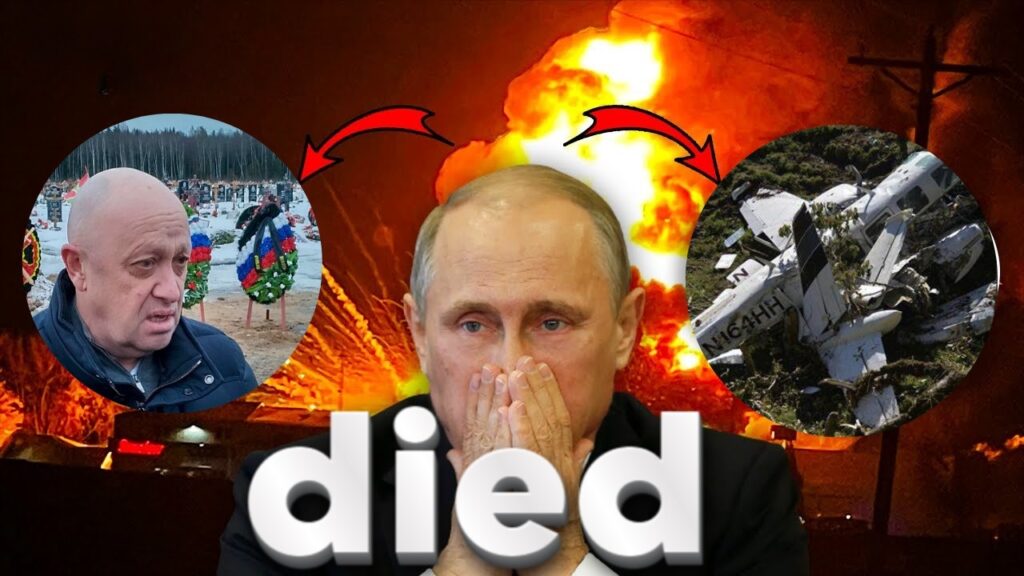
Furthermore, Russian authorities have confirmed Prigozhin’s demise on the aircraft through DNA testing of remains recovered from the disaster site. Notably, Prigozhin’s death occurred just two months after he led an uprising against Vladimir Putin’s regime. He expressed frustration with the treatment and utilisation of his forces and subsequently ordered a march toward Moscow.
In contrast, Russian officials have mostly disregarded widespread conjecture suggesting Vladimir Putin’s involvement in the fatal incident. Nonetheless, the Kremlin has acknowledged the possibility of foul play, as the crash may have resulted from intentional misconduct.
Other mysterious Russian deaths or attacks surrounding Putin

Boris Nemtsov
In 2015, Boris Nemtsov, a prominent Russian opposition figure known for his strong criticism of the Putin administration, was fatally shot in an assault that took place on a bridge within sight of the Kremlin.
- He met his demise just a few days prior to his scheduled leadership of an uncommon public demonstration against Russia’s takeover of Ukraine’s Crimean area and its backing of separatist activities in eastern Ukraine’s Donbas region.
- The Kremlin disavowed any participation, while in 2017, a Russian court found five individuals guilty of Nemtsov’s murder in a trial that his family labeled as an attempt to conceal the truth.
- In the years that followed, it came to light that a government agent working with a group that carried out assassinations had been closely watching him in the months before his death.
Alexei Navalny
The leader of the opposition, Navalny, who is currently incarcerated for approximately three decades, was poisoned in August 2020 using a potent nerve agent known as Novichok, a product of Soviet Union’s research and development.
- The Kremlin claimed no responsibility, but later inquiries conducted by Bellingcat revealed that the individuals behind the assault were affiliated with Russia’s Federal Security Service (FSB) and that the decision to poison him had come from the highest levels of the Kremlin.
Alexander Litvinenko:
In 2006, Litvinenko, a former KGB agent turned whistleblower, passed away in the United Kingdom as a result of poisoning with a scarce and extremely radioactive substance known as polonium-210.
- Once more, Russia has refused any participation, yet both the United Kingdom and the European Court of Human Rights have reached the determination that Russia likely played a role. The UK investigation even went as far as suggesting that Putin “likely sanctioned” the assassination of Litvinenko.
- One of the indications suggesting the Kremlin’s participation is the observation that nearly all the global supply of polonium-210 originates from state-managed nuclear facilities in Russia, where nuclear authorities have emphasized strict oversight over access to this element.
Sergei Skripal:
In 2018, Skripal, a former Russian intelligence operative residing in the United Kingdom, along with his daughter, fell victim to an assault in Salisbury. They were targeted with a nerve agent that bore a resemblance to the substance employed in the attack against Navalny.
- Skripal and his daughter managed to survive, but a British citizen lost their life, and several others were harmed when they encountered a perfume container suspected to be linked to the incident.
- The United States, the United Kingdom, and several other countries have jointly determined that individuals affiliated with the Russian military intelligence agency were responsible for the poisonings. Furthermore, the United Kingdom has formally accused three members of this agency in connection with the incidents.
Yuri Shchekochikhin:
In July 2003, Russian investigative journalist and liberal lawmaker Shchekochikhin experienced a sudden illness and passed away. Doctors at a hospital associated with the Kremlin stated at the time that his cause of death was attributed to a severe allergic reaction.
- His family members have reported that Shchekochikhin endured a harrowing 12-day period characterized by excruciating pain, during which his skin progressively peeled off, his hair fell out, and his organs suffered successive failures.
- When they requested access to Shchekochikhin’s medical records, medical professionals informed his family that these documents were being held by prosecutors, citing them as a “medical secret.” This was in relation to an investigation that would not be initiated until several years later.
- In the years leading up to his demise, Shchekochikhin had published investigative reports exposing a smuggling operation, money laundering activities, and a corruption scandal involving high-ranking FSB (Federal Security Service) agents.
- Additionally, he had been delving into the potential involvement of the FSB in the 1999 Moscow apartment bombings, an event that played a part in triggering the Second Chechen War.
Anna Politkovskaya
In October 2006, Anna Politkovskaya, a Russian journalist and advocate for human rights, was fatally shot in her residence located in Moscow.
- She had documented human rights abuses during the Second Chechen War and authored a book in 2004, asserting that Putin, via the FSB, was suppressing civil liberties to steer the nation toward a Soviet-style dictatorship before she passed away.
- In 2014, a Moscow court convicted five men for her murder, but the identity of the individual who ordered her assassination was never determined.
Multiple Russian oligarchs and executives also died :
According to a report from The New York Times, a number of prominent Russian oligarchs and high-ranking executives have met untimely deaths in perplexing circumstances, including suicides and accidents, since the commencement of Russia’s invasion of Ukraine.
- Ravil Maganov, who held the position of Chairman of the Board at Lukoil, a prominent Russian conglomerate, experienced a tragic and unexpected demise in September 2022. This unfortunate incident occurred when he fell from a hospital window in Moscow. The circumstances surrounding his death garnered significant attention and controversy in Russia and beyond.
- Russian media initially reported that Ravil Maganov had taken his own life, implying that it was a case of suicide. However, in response to these reports, Lukoil released an official statement following his passing. According to the company’s statement, Maganov did not succumb to suicide but rather passed away as a result of a severe illness.
- The sudden and perplexing nature of Maganov’s death, along with the contrasting narratives presented by the media and Lukoil, added an extra layer of complexity to this tragic event. It raised questions and speculation within both the business community and the public, leaving many seeking further information and clarity about the circumstances surrounding the loss of a key figure in one of Russia’s largest private corporations.
Mysterious Deaths Among Russian Elites Amid Ukraine Conflict
Wagner Group Leader Yevgeny Prigozhin’s Recent Death Sparks Concern
Yevgeny Prigozhin’s Tragic Plane Crash:
Yevgeny Prigozhin, the leader of the Wagner Group, met a tragic end in a plane crash while traveling between Moscow and Saint Petersburg. His death came shortly after a mutiny by his mercenaries in June, which strained his relationship with President Putin.
Speculation Surrounding Prigozhin’s Death:
Many speculate that Prigozhin’s death might be a political assassination, signaling a warning to Russia’s elites ahead of the 2024 elections. Ukrainian presidential aide Mykhailo Podolyak shares this sentiment.
Putin’s Response:
President Putin offered condolences and acknowledged Prigozhin’s contribution to fighting in Ukraine. He described Prigozhin as a complex figure with both achievements and mistakes. Several Russian elites have died under mysterious circumstances in the past year, raising concerns and conspiracy theories.
Deaths in Early 2022:
The string of unusual deaths began in early 2022, just before Putin’s invasion of Ukraine. Notable figures like Leonid Shulman, Alexander Tyulakov, Igor Nosov, and Mikhail Watford were among those who passed away.
Bizarre Deaths:
Some deaths took on bizarre and perplexing forms, such as Vasily Melnikov’s family stabbing and Vladislav Avayev’s murder-suicide. Alexander Subbotin’s death, involving a shaman and Jamaican voodoo rituals, stood out as particularly unusual.
Continued Deaths:
The pattern of elite deaths persisted into late 2022, with Pavel Antonov’s fatal fall from a hotel window in India. Several of these individuals had voiced criticism of Putin’s actions in Ukraine.
Despite these puzzling incidents, there is no clear and definitive explanation for these deaths. Many have noted the connection between the outspokenness of these elites and their unfortunate fates.
The death of Yevgeny Prigozhin, along with the string of mysterious deaths among Russian elites, remains a topic of intrigue and speculation, leaving many questions unanswered about the circumstances surrounding these individuals’ demises.




